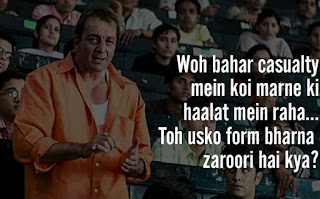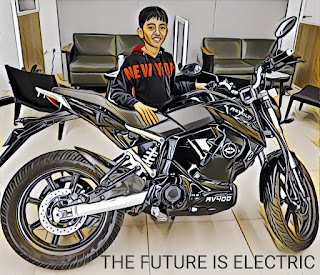Dissent, Debate & Democracy...
In the first film of Rajkumar Hirani, Munna
Bhai M.B.B.S. that released in 2003, Munnabhai raises dissent to ask the
dean of the college, Dr Asthana. The question, “Woh bahar casualty mein koi
marne ki halat mein raha to usko form bharna zaruri hai kya?” (If someone’s
out there dying in the casualty ward, does he have to fill a form first?),
asked by Munnabhai MBBS then was applauded by the youngsters. During
those days, Munnabhai used to seem cool raising questions on the establishment.
Even in 2011 and 2012, supporting movements or protests (aandolans?) against the corruption or asking questions against fuel price hike was considered as being responsible
citizen.
However, after 2014, things started
changing drastically with the rise of Social Media and controlled mainstream
media. Before 2014, we could debate on governance issues or raise dissent about
the functioning of the government. However, any form of dissent or effort to
defy the status quo today can result in retaliatory legal action by the
executive. Dissent against the establishment is no more cool or a sign of being a vigilant
or responsible citizen. On the contrary, it may attract sedition or criminal defamation
charges. And the complaint can be filed by anyone, right from your neighbor or
a local fuel outlet owner. Also, you can see an army of trollers right there to
support such action.
The mainstream media are under pressure to
toe the government line. Today, journalism is considered synonymous with
chauvinism, where any idea that tries to find faults in the government is met
with hostility and resistance. Due to this, the celebrities who used to stand against
the fuel price hike or jobs have just become mute spectators and respond only at face value. We have witnessed and experienced the transition of most
debates (if not all) from news to noise, facts to friction, truth to tussle,
from being a platform of discussion to an arena of verbal bloodsport. The
public discourse on national televisions, particularly audience-based shows, is
at a new low in terms of factual content and a new high in terms of decibel and
toxicity. The debates on mainstream media News (?) channels have now become
confined to two religions and image-building exercises of political leaders. Rather
than creating 'informed citizens', such shows are creating a frenzy mentality.
The journalists or anchors are paid to ask questions to the opposition rather
than the establishment and then these journalists only question, where is the
opposition?
For a nation whose constitution guarantees
the right to freedom of speech and expression, the escalating assaults on
activists or fact-checking media might be a worrying and damaging development.
But India is still a democratic nation. Dissent and debate might be ‘too much democracy’
in today’s era. But the very basic ethos
of Indian democracy i.e. "we agree to respectfully disagree with each
other" is sometimes being followed. Due to this democracy, Disha Ravi can
share a toolkit and still get bail, Shyam Rangeela can upload a video against
the Petrol price hike and still roam free.
But the present government has got the political will to carry out needed reforms, be it the farm bills, CAA, or change the cities or stadium’s name. And if you seek and get the answers to difficult questions from the establishment, it can transfer the Information Officer, so that no RTI officer would dare to give you the right information in the future. So, the mantra for vikas is to dissent less, watch debate only on TV, and don’t expect too much democracy :)




Comments